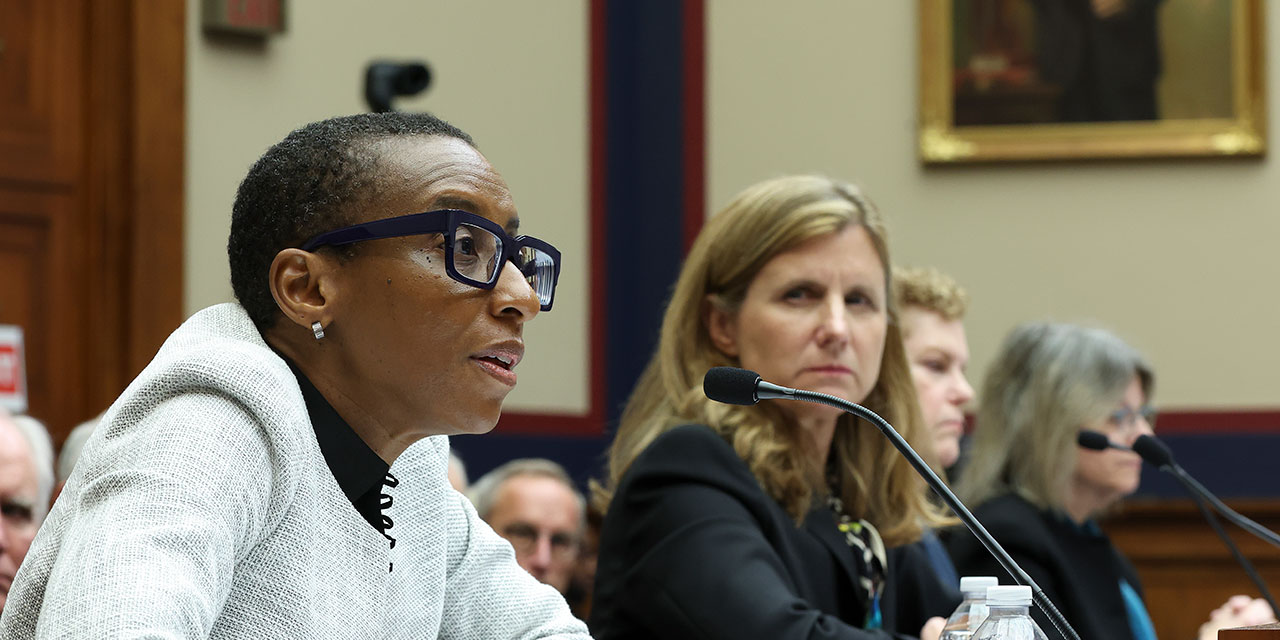A congressional hearing showed a glaring lack of leadership from college presidents. Our schools need honest, trustworthy, empathetic leaders.
When the presidents of Harvard, the Massachusetts Institute of Technology, and the University of Pennsylvania appeared before the House Committee on Education and the Workforce, it was an opportunity to defend their respective responses to antisemitism and other hatred on campus. It also presented a chance to showcase their leadership capabilities to the American public.
Sadly, they failed on both accounts. In response to a question about free speech and genocide, the presidents parsed words too carefully and then dispassionately answered by saying that whether calling for genocide was protected as free speech on campus was largely dependent on “context.”
In the wake of huge outcries, each president backtracked, apologized and acknowledged the need to reevaluate their policies, especially given the inconsistency of how the schools themselves applied or ignored free speech in other cases. Penn’s Liz Magill even resigned.
But the damage had been done. From a leadership perspective, they failed to demonstrate the requisite modicum of empathy expected of 21st century leaders – and the necessary moral clarity when discussing one of humanity’s gravest crimes.
Unfortunately, we should not be surprised. While Americans seem to be at odds over almost everything in society, our latest U.S. News-Harris Poll survey identified one area that Americans do agree on: Our leaders are disappointing us.
According to our survey, nearly 9 in 10 (86%) of Americans are largely disappointed by leaders in society – something on which even Democrats and Republicans find common ground (83% and 87%, respectively). And roughly 60% of Americans think university leaders are failing students.
Worse, 3 in 4 (75%) believe leaders today are preventing society from progressing, a sentiment shared by the majority of all genders, generations, races and political parties. Moreover, 7 in 10 (69%) believe current leaders are not prepared to respond to the new crises of today.
Research released earlier this year by Axios and the Harris Poll revealed Americans overwhelmingly (88%) identified trustworthiness as the most important characteristics to being a successful modern leader. A separate U.S. News-Harris Poll survey found that Americans are looking for trustworthy, honest and hardworking leaders.
Of course, leadership in the academic world has never been easy. The role of a university president, even in the best of times, requires a delicate balance of managing competing constituencies (students, faculty, administrators, trustees, donors and more) while also setting a clear vision for one’s academic institution.
But last week’s hearing exposed to millions that our university leaders are falling down on the job at a time when we expect and demand more from them.
To be fair, some have been able to demonstrate real moral leadership and compassion, while at the same time inculcating the right values to their students and campuses and respecting the First Amendment.
Others have clearly not met those standards. By failing to do so, they have lost the trust of their constituencies at a time when we are already seeing declining levels of trust in our academic institutions as well as decreasing enrollment numbers.
Ordinarily, we need to give leaders the time to learn their jobs and grow into them. After all, many of these presidents are newly ensconced in their roles, with but a few months of experience. But if you no longer hold the trust of your most important constituencies, can you lead? Compounding this, in the eyes of many, academic leaders who failed to immediately condemn the savagery of the Oct. 7 attacks on Israel and have consistently equivocated on deeply sensitive issues like campus speech that calls for genocide have lost the moral clarity to lead.
In these distressing circumstances, resolute leadership is needed. Offering empathy and support is needed. Condemning antisemitism, Islamophobia and other hatred is needed. But silence, moral equivocations and word parsing have no place during these times.
And, it is not just the university presidents. These schools all have distinguished boards of trustees who must show leadership in fulfilling their fiduciary role by choosing, overseeing and sometimes dismissing their presidents.
We are already suffering the pernicious effects that arise when leadership lacks the traits that Americans want. Over the last two months, Congress has opened investigations into “the learning environments” of many universities, State leaders are carefully monitoring their public universities, trustees are under fire and donors are pulling their monies. Enough!



